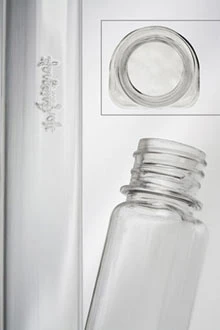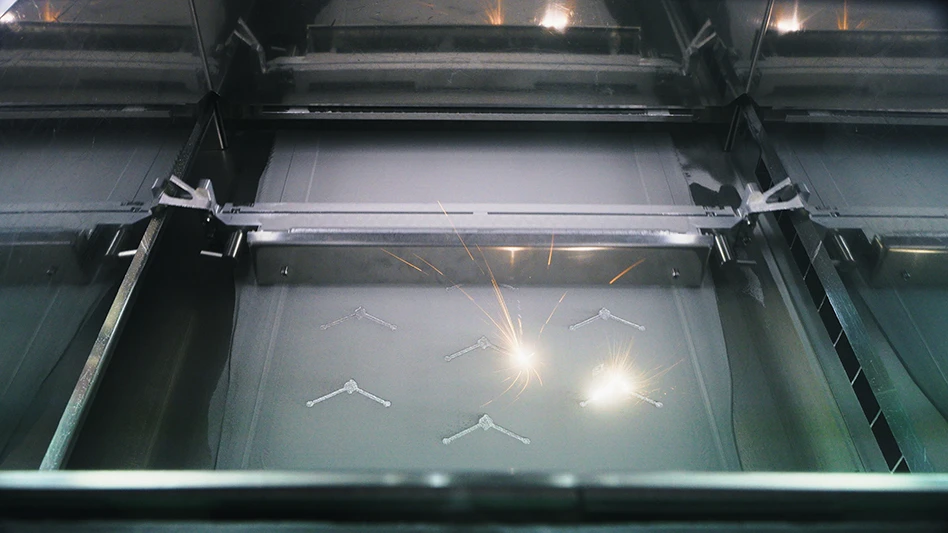
With healthcare needs on the rise, medical OEMs are turning to plastics to create safer, more innovative products, and to minimize business costs. Eastman Chemical Company's Eastar Copolyester MB002 was selected for the redesign of Artegraft Inc.'s 21-in. glass culture tube. This tube is used to package the company's collagen vascular grafts. An occurrence of breakage during transportation prompted Artegraft to develop a stronger, more resilient package to protect its medical device used as a hemodialysis graft, or for peripheral bypass.
Instead of the glass tube's cylindrical shape, the new plastic culture tube has a flat side so that it will not roll and potentially fall, thereby damaging the graft packaged inside. For ease of use, the diameter of the neck opening was increased, and a peel-away, heat-shrink tamper evident seal was added. Each new tube is embossed with the Artegraft name on the outside.
"The packaging expertise of O.BERK Company coupled with the performance of Eastar Copolyester MB002, created the best possible solution for our conversion from glass to plastic," says Laurence A. Potter, Vice President of Scientific Affairs from Artegraft. "Now we have a more robust, more stable, safer package that does not compromise the surgical readiness or performance of our grafts. "Secondary packaging costs can be decreased as well as transport, warehousing and other expenses as a result of the switch to plastic," adds Potter.

The medical grade copolyester is a resin specifically developed for extrusion-blown molding containers in medical applications.
The medical grade Eastar Copolyester MB002 is a resin specifically developed for extrusion-blown molding containers in medical applications where aesthetics such as high clarity and gloss, coupled with high toughness and chemical resistance are desirable. Relevant testing has been performed on samples of this resin after Gamma and EtO sterilization according to protocols from ISO 10993, Biological Evaluation of Medical Devices, and USP monograph (Class VI), Biological Reactivity Tests.
Additionally, the Eastar Copolyester MB002 resin is compatible with the same sterility and validation processes used for Artegraft's existing glass tubes, which passed FDA review criteria.
"Aside from its stellar manufacturing properties, Eastar's proven alcohol resistance ensures the plastic will not absorb into Artegraft's sensitive product," says David Gotler, Director Technical Services from O.BERK Company. "Essentially, we found a plastic that mirrored the advantages of glass, allowing Artegraft to respond quickly to medical industry needs with a sound patient product."
Eastman's medical market segment team provided expert consultation about Eastar, and just-in-time delivery of resin to the blow molder to meet production deadlines. The Eastman team fasttracked their role in the project—they were an excellent, critical partner for the success of the new package," comments Gotler.

Explore the September 2007 Issue
Check out more from this issue and find your next story to read.
Latest from Today's Medical Developments
- HERMES AWARD 2025 – Jury nominates three tech innovations
- Vision Engineering’s EVO Cam HALO
- How to Reduce First Article Inspection Creation Time by 70% to 90% with DISCUS Software
- FANUC America launches new robot tutorial website for all
- Murata Machinery USA’s MT1065EX twin-spindle, CNC turning center
- #40 - Lunch & Learn with Fagor Automation
- Kistler offers service for piezoelectric force sensors and measuring chains
- Creaform’s Pro version of Scan-to-CAD Application Module





